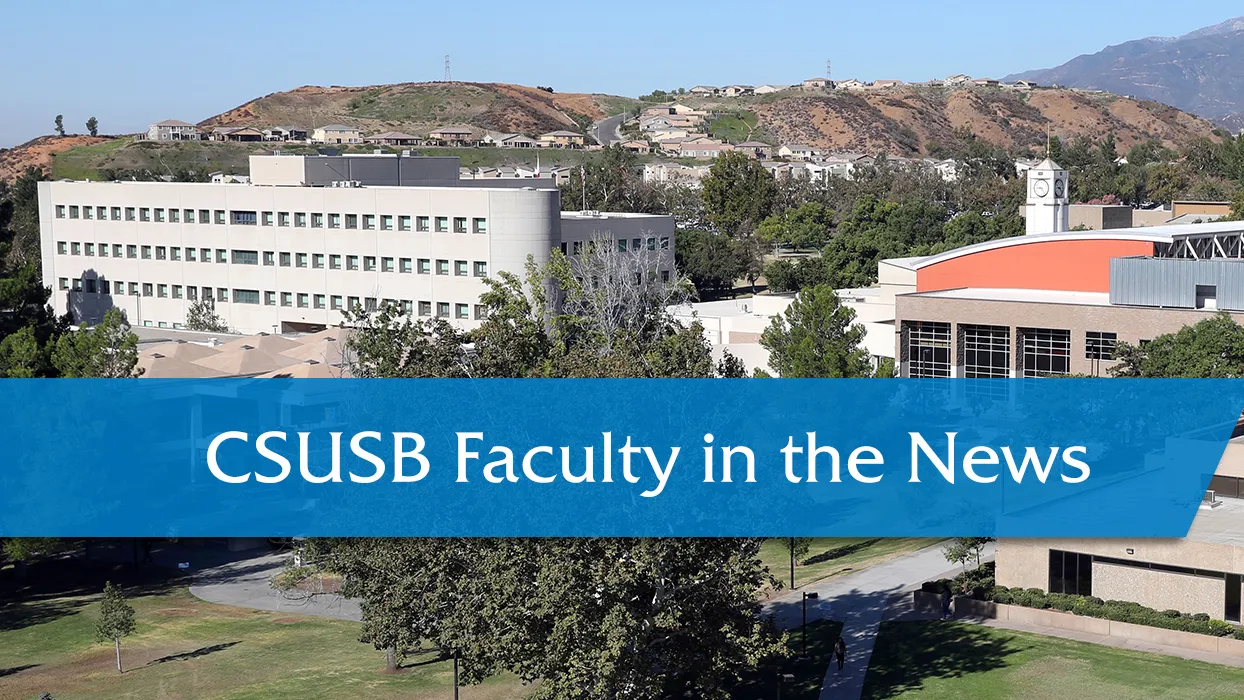NOTE: Faculty, if you are interviewed and quoted by news media, or if your work has been cited, and you have an online link to the article or video, please let us know. Contact us at news@csusb.edu.
CSUSB-Whatcom Community College cyber pilot program among those funded by National Science FoundationOct. 3, 2018National Science FoundationThe Collaborative Research: Community College Cyber Pilot Program (C3P), with CSUSB’s Tony Coulson and Whatcom Community College’s Corrinne Sande as principle investigators, is one the programs funded by the National Science Foundation. Whatcom Community College is located in Bellingham, Wash. The NSF's Community College Cyber Pilot (C3P) program issued three awards to project leads that will build research collaborations among partners in six states: California, Illinois, New Jersey, Ohio, Texas and Washington. The National Defense Authorization Act for Fiscal Year 2018 gives NSF, in coordination with the Office of Personnel Management, authorization to develop and implement a C3P program as part of NSF's CyberCorps®: Scholarship for Service (SFS) program. Read the complete article at “Community College Cyber Pilot Program makes first awards.”
Difficulties in adding hate crime charges to murder case discussed by CSUSB professorNew VoicesOct. 3, 2018Brian Levin, CSUSB professor of criminal justice and director of the Center for the Study of Hate and Extremism, discusses the difficulty in prosecuting hate crimes in an article about the murder of an Orange County man in January. There are several factors that make hate crimes difficult to prosecute as such, said Levin. “Most hate homicides in the United States are not even prosecuted under hate crime statutes,” he says. A crime must be proven beyond a reasonable doubt to be motivated by hatred, he explains, according to the Supreme Court’s rulings in 1993’s Wisconsin v. Mitchell and 2000’s Apprendi v. New Jersey cases, which cemented the constitutionality of hate crime enhancements. However, the process of adding a hate crime enhancement to an existing charge is not always an easy one. “Adding another dimension to the case might end up putting more information before a jury that already has full plate,” says Levin. Instead, many hate crimes are filed and prosecuted under regular criminal statutes. On January 9th, 2018, Blaze Bernstein’s corpse was discovered in a shallow grave in Lake Forest, California. Bernstein’s murder came in the wake of the year that had, according to the Anti-Defamation League (ADL), the largest single-year increase of anti-Semitic incidents on record. Bernstein was a 19-year-old gay, Jewish man. His alleged killer is 21-year-old Samuel Woodward, a peer of Bernstein’s from high school. According to an investigation by ProPublica, Woodward has been involved with the Atomwaffen Division, a neo-Nazi group with a violent history. (Among other evidence, ProPublica obtained photographs of Woodward at a Atomwaffen meeting, including a photo in which he gives a straight-armed Nazi salute). Read the complete article at ”Murder of gay, Jewish student raises questions about hate crime prosecution.”
CSUSB professor offers context as four white supremacists face charges in federal courtLos Angeles BladeOct. 3, 2018Brian Levin, CSUSB professor of criminal justice, is quoted in an article about federal charges filed against four California men linked to a white supremacist group that was involved with the violence in Charlottesville, Va., in August 2017. “You could have a whole treatise just on California hate,” said Levin, director of the Center for the Study of Hate and Extremism at Cal State San Bernardino, told the LA Times. “California is one of those ground-zero places. These new fragmented groups are looking to do in-your-face kind of stuff in blue places.” Read the complete article at “White Supremacists arrested for links to Charlottesville rally.”
These news clips and others may be found at “In the Headlines” at inside.csusb.edu.
